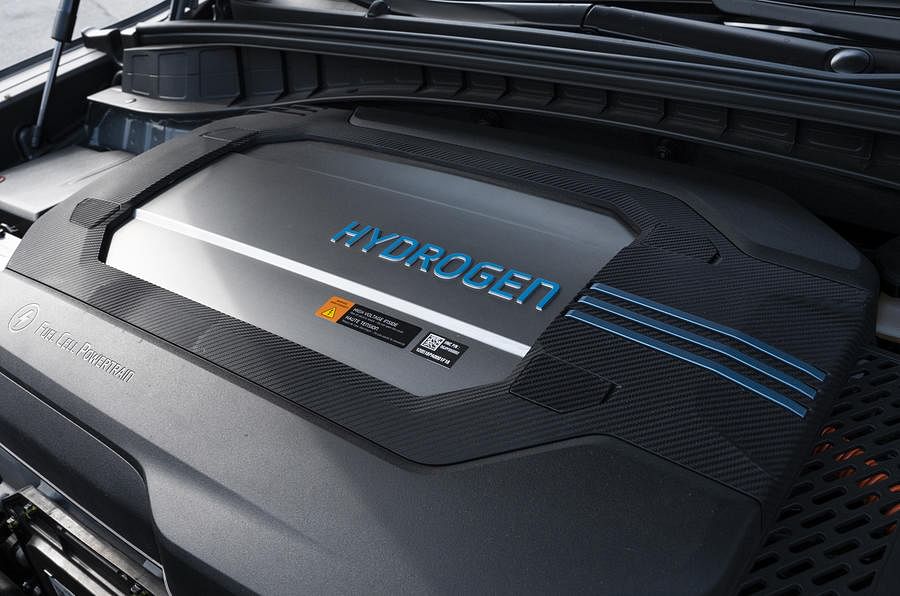Hyundai to invest £5.5bn in hydrogen fuel cell technology
South Korean manufacturer is aiming to take a lead in fuel cell technology - and not just for cars.
The Hyundai Motor Group will invest £5.5 billion (Rs 49,557 crore) in developing hydrogen fuel cell technology, as part of plans to vastly increase the number of cars it sells that use the powertrain.
The Korean firm, which presides over Hyundai, Genesis and Kia, is one of the major proponents of fuel cell powertrains, which combine hydrogen and oxygen to produce electricity, with water the only byproduct.
Hyundai expects global demand for fuel cell powertrains to grow to around two million units per year by 2030, and to capitalise on this is planning a major investment in both research and expanding its hydrogen facilities.
This includes expanding its fuel cell system production capacity to 700,000 units per year, with plans to build up to 500,000 fuel cell electric vehicles (FCEVs) per year, for both passenger and commercial purposes. The group is also aiming to use fuel cell systems to power other vehicles, including drones, ships and forklift trucks, and for other uses, such as power generation and storage.

“We will expand our role beyond the automotive transportation sector and play a pivotal role in global society’s transformation to clean energy by helping make hydrogen an economically viable energy source,” said Hyundai Motor Group vice chairman Eui-sun Chung.
The group launched its first machine built on a dedicated fuel cell architecture, the Hyundai Nexo, earlier this year, following the ix35 Fuel Cell from 2013. Kia is set to launch its own FCEV using the platform in 2021.
Take-up of hydrogen vehicles has been relatively slow due to their high costs (the Nexo is likely to cost £65,000 when it goes on sale in the UK next year), but the powertrain system benefits from economies of scale due to the costs of buying some of the key materials needed, so increasing volume should reduce prices.
Part of the group's FCEV Vision 2030 plan is the construction of a new fuel cell system plant in Chungju, South Korea, which will help the Hyundai Mobis parts supply firm increase its output of the systems from 3000 to 40,000 units by 2022.
In June, Hyundai Motor Group reached an agreement with the Volkswagen Group to develop hydrogen technology collaboratively.
Also read: Hyundai and H2 Energy to supply 1,000 HD fuel-cell electric trucks to Switzerland
Audi and Hyundai join hands to develop fuel cell technology
Hyundai Nexo fuel cell SUV achieves 5-star Euro NCAP safety rating
RELATED ARTICLES
Hyundai unveils next−gen highly efficient hybrid system
The next-gen hybrid system is claimed to offer 45% better fuel efficiency and 19% more power compared with ICE powertrai...
Horse Powertrain reveals hybrid conversion for electric cars
Engine-making joint venture of Geely and the Renault Group announces new hybrid powertrain that fits into the same space...
Aisin to produce hybrid motor for Mitsubishi in Thailand
The hybrid drive motor and gearbox, will be produced at Aisin Powertrain (Thailand) Co for use in the Mitsubishi XForce ...






 12 Dec 2018
12 Dec 2018
 5156 Views
5156 Views





 Autocar Professional Bureau
Autocar Professional Bureau




